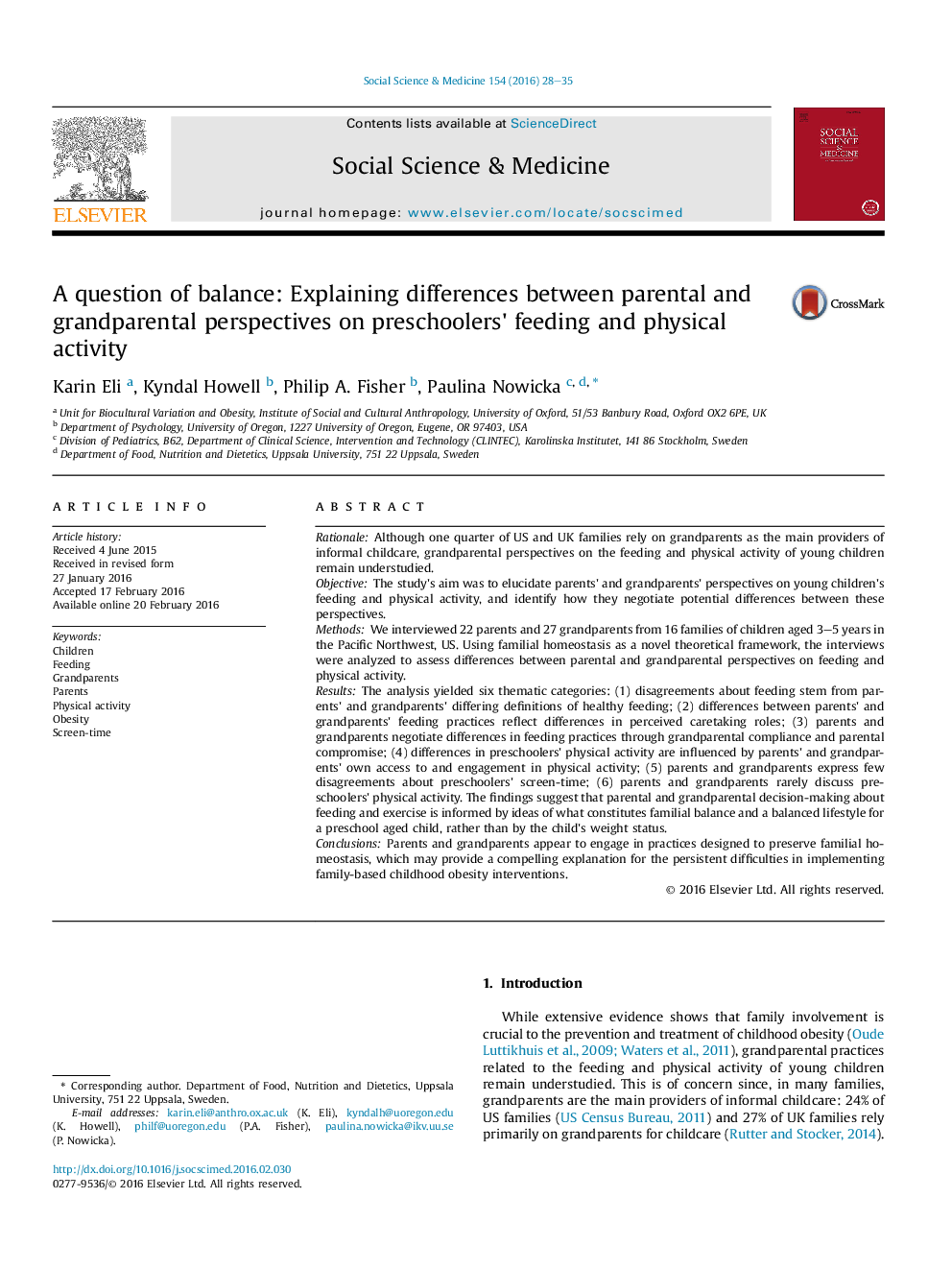| Article ID | Journal | Published Year | Pages | File Type |
|---|---|---|---|---|
| 952217 | Social Science & Medicine | 2016 | 8 Pages |
•Parental and grandparental practices were examined in families with preschoolers.•Grandparents' “indulgent feeding” was perceived as reflecting their familial role.•Parents and grandparents expressed few disagreements about children's’ screen-time.•Parents and grandparents speak of offsetting children's unhealthy practices with healthy practices.•Parents and grandparents seek familial balance when making feeding and exercise decisions.
RationaleAlthough one quarter of US and UK families rely on grandparents as the main providers of informal childcare, grandparental perspectives on the feeding and physical activity of young children remain understudied.ObjectiveThe study's aim was to elucidate parents' and grandparents' perspectives on young children's feeding and physical activity, and identify how they negotiate potential differences between these perspectives.MethodsWe interviewed 22 parents and 27 grandparents from 16 families of children aged 3–5 years in the Pacific Northwest, US. Using familial homeostasis as a novel theoretical framework, the interviews were analyzed to assess differences between parental and grandparental perspectives on feeding and physical activity.ResultsThe analysis yielded six thematic categories: (1) disagreements about feeding stem from parents' and grandparents' differing definitions of healthy feeding; (2) differences between parents' and grandparents' feeding practices reflect differences in perceived caretaking roles; (3) parents and grandparents negotiate differences in feeding practices through grandparental compliance and parental compromise; (4) differences in preschoolers' physical activity are influenced by parents' and grandparents' own access to and engagement in physical activity; (5) parents and grandparents express few disagreements about preschoolers' screen-time; (6) parents and grandparents rarely discuss preschoolers' physical activity. The findings suggest that parental and grandparental decision-making about feeding and exercise is informed by ideas of what constitutes familial balance and a balanced lifestyle for a preschool aged child, rather than by the child's weight status.ConclusionsParents and grandparents appear to engage in practices designed to preserve familial homeostasis, which may provide a compelling explanation for the persistent difficulties in implementing family-based childhood obesity interventions.
